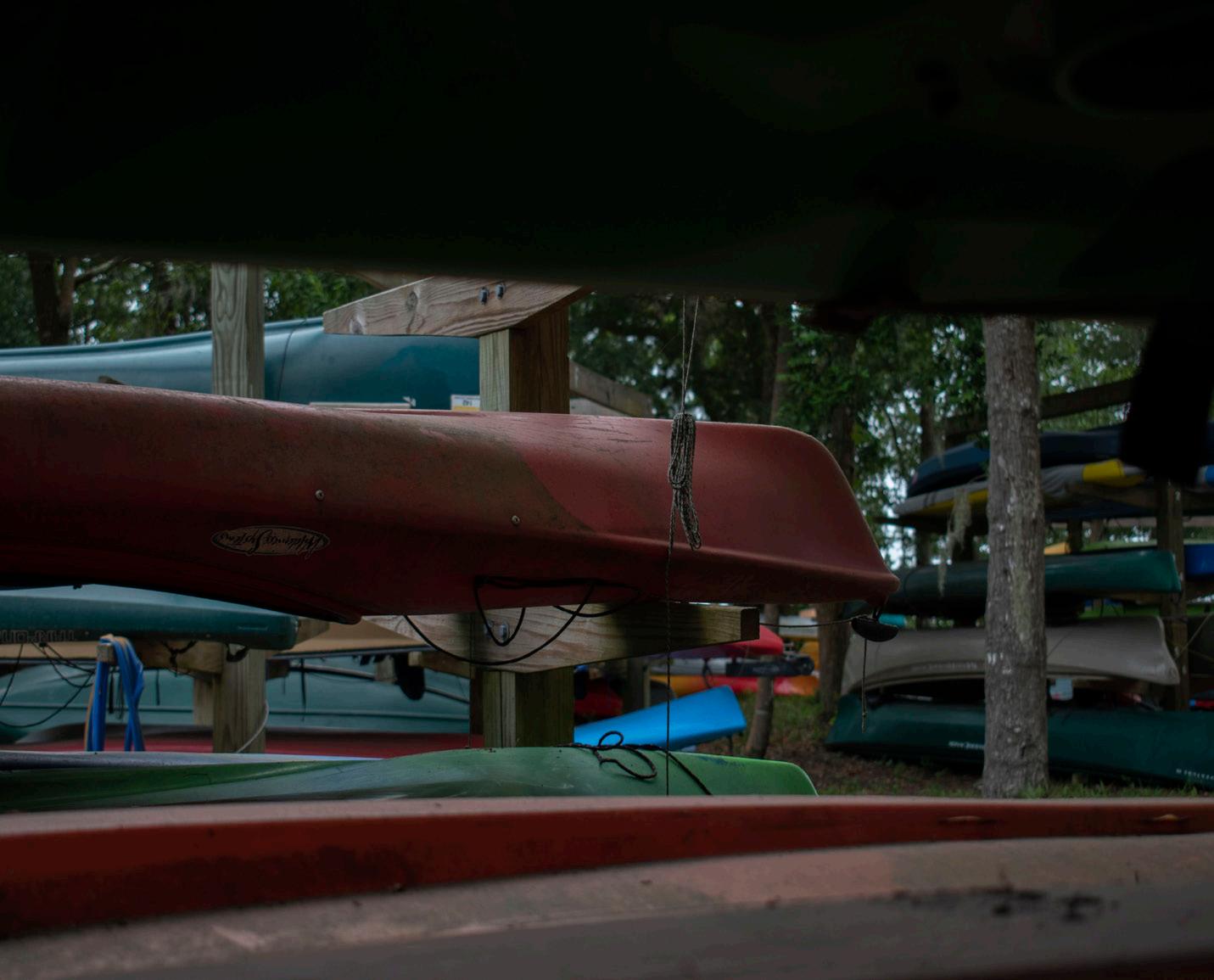
11 minute read
Imani, My Child
Tommy takes us down to the riverhouse so many times he forgets how to get there on this road we threw firecrackers and then quiet water calls to me strengthened by soot and the blood of coal miners I want to jump in even if it would mean drowning it is so hot here it’s poisoning all of us
Tommy looks away across the bank so I cut myself quickly into pieces Richard’s boy aren’t you a familiar face I have never seen before he does not know his kindness it is his cardinal sin even I know to be spit on by all good believers to speak with eyes to my cousin smoking behind the house
Tommy will fall into the river eventually that much we believe together wordlessly I don’t know why I still come here to sit on the banks of the Lethe maybe if I dream hard enough they will forget about my worst parts the parts they can’t love

Soliana Yimtatu
The Western Elementary school bus dropped Imani off at our door.
Sitting upstairs on an ivory-colored cushion, I heard my little girl drop her backpack onto the wooden floor, making loud noises.
She dashed upstairs with her mulch-covered sneakers in a hurry. I spotted my darling standing by my door. Her big eyes stared into my soul and told me that something was wrong. I quickly rose and rushed to her. I asked her if she was okay. She looked at me with somber curiosity and asked me, “Am I different, mommy?” I had no clue what provoked this question. My five year old daughter could sense my confusion, as I had been stunned by this question. She proceeded to tell me a story.
Imani was innocently playing at recess until a group of white kids came up to her and started touching her hair. As a black girl,
Imani has beautiful, coily hair, which most white folk are not used to seeing. Imani, at first, did not take the sudden interest in her afro as something negative, but after a few minutes, she said she felt like an exhibit at a zoo. The white kids started asking questions and making unnecessary comments. Her hair was compared to dried wash sponges and the mane of a lion. She was asked why she looked the way she did, since no one else in their class looked like
Imani. I had my doubts about sending Imani to a predominantly white institution as a child, but we live in Virginia and it is very difficult to find a properly funded diverse school without paying a tuition that would cause my bank account to suffer. I knew Imani would face troubles as a black child eventually, but I was shocked at how soon it happened. I told Imani that she is a pretty girl and that she did not need to look like her classmates to feel beautiful.
She leaned her head against my stomach and I held her so tight so she could feel some sense of comfort. With tears trickling down her face, she looked up at me and asked, “Mommy, did this ever happen to you?” She wanted to feel that she was not alone in this 42
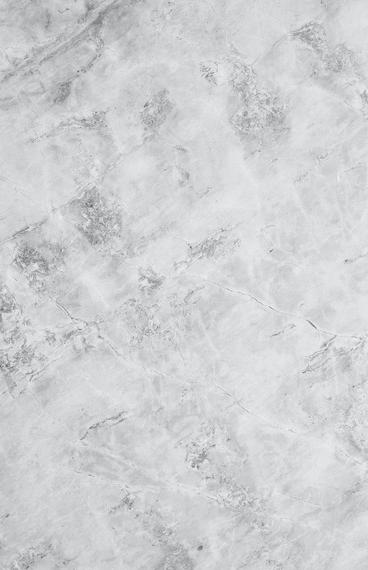
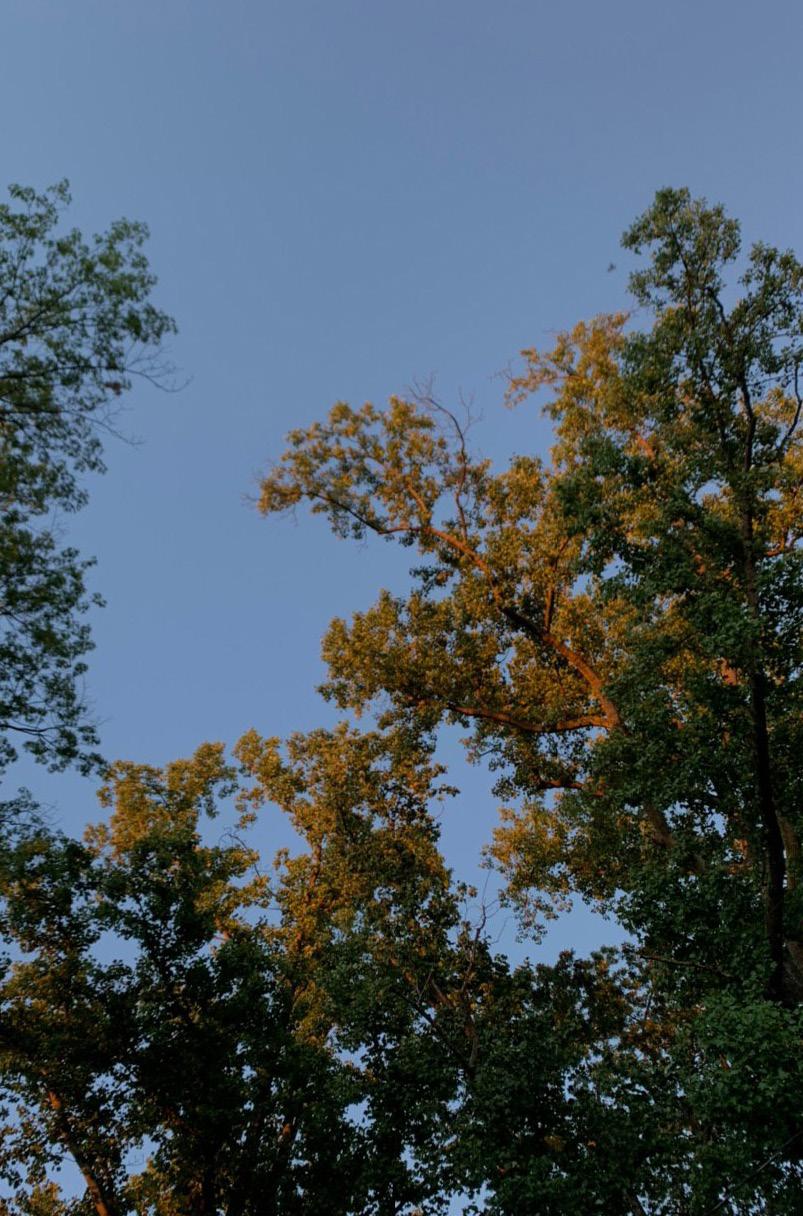
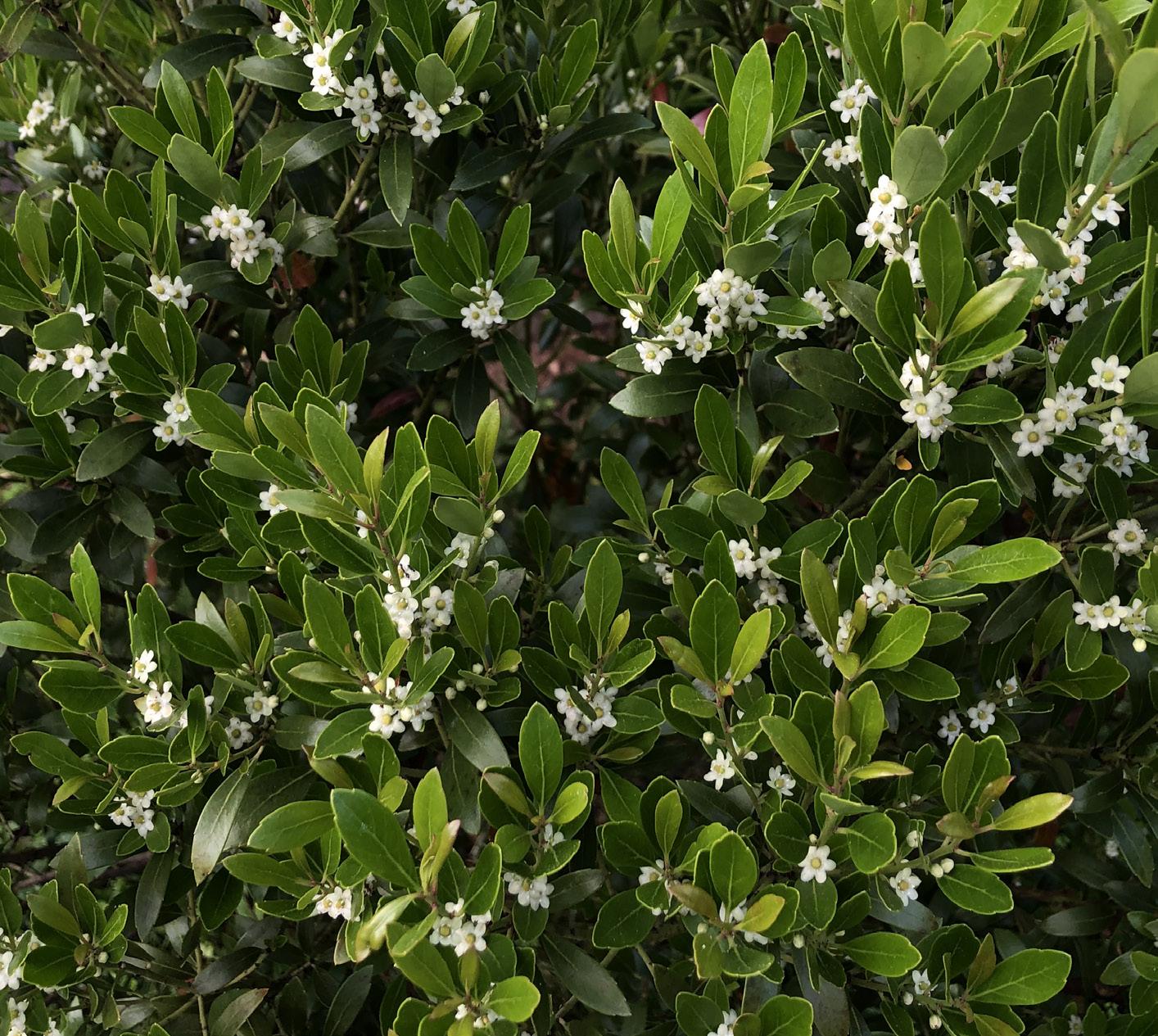

struggle.
You never forget the first time you experience blatant racism. I told my sweetheart that I had experienced many situations like this, and, being the curious child she is, she wanted to hear every single detail of my experiences when I was a black child. So, I began to tell my stories.
The first story I told my daughter happened when I was in middle school. My middle school was centered around the arts and, annually, every grade would perform a song for the whole school. During my sixth grade year, we were doing a song from the television show called Glee. There were some solo auditions to play the characters Rachel Berry, Quinn Fabray, Finn Hudson,
Santana Lopez, Brittany Pierce, and Mercedes Jones, the only black character. Honestly, I was not thinking about race during the auditions, and I wanted to sing Brittany Pierce’s part in the song.
I walked into the line of girls who were auditioning. All of them 44
had pale skin, long blonde hair, and bright eyes. These bright eyes looked at me in confusion, but none of them said a word to me. It was my turn to audition for the solo. Before I even sang, the teacher looked at me up and down, and laughed. He told me that I wasn’t right to sing Brittany Pierce’s part. I asked him how he knew I was not right for the role if he had not heard me audition. He looked and told me to take a “hard look in the mirror and see if [I] was qualified enough for Brittany Pierce’s part.” I was twelve years old. I wasn’t looking for any drama. I wasn’t looking to make a scene. I just wanted to participate in the singing. So, I asked if there were any other solos available. He told me I had to be Mercedes Jones. I couldn’t audition and I couldn’t back out. I asked him why and he told me to “take a hard look in the mirror and see why that is the role best suited” for me. Being a kid, I was not expecting a teacher, an adult who is supposed to tell students about all the possibilities of life, to prohibit me from activities due to my skin color. However, I complied, for I thought that he must be right. I can only accomplish things to a certain limit, which exists because of my blackness.
I was in eighth grade. It was a free period and I was sitting alone working on some homework just like every kid in the class except for this group of white boys. They sat together as they had a conversation about girls. They were talking about their types and what they look for in a girl. The conversation was not problematic at first. Some of them liked long hair that touched the lowest part of a girl’s back. Some of them liked shorter hair that barely hit the shoulders. Some wanted a tall girl who could wrap them in empowering, yet comfortable hugs. Some wished for a smaller girl who they felt like they could protect and hold. A preference is a preference, which I understood. Then, the boys started pointing at each girl in the classroom as they loudly stated their opinions on her. Macy, a white girl with blue eyes that matched her long platinum blonde hair, was said to be the most beautiful of them all. She was the beauty standard for thirteen-year-old girls at my school. Other girls in the classroom who could compare to her were white brunettes, blondes, and redheads with brightly colored

eyes. I had no similarities to them. I did not care too much. Did it hurt my feelings? Yeah, a little bit. As a kid, you want the attention of some guys, but what they said so far did not hurt me deeply. One of the boys, Gregory, pointed at me. He whispered to his boys, “What do you think of her?” His friend, Conor, said he was not the biggest admirer of my complexion since it reminded him of turd. They all laughed in agreement. Gregory responded that he did not want a girl who is colored like charcoal. I looked at my hands in disgust. I thought that my value was equivalent to excrement and charcoal. I felt less than human. Jack, the twin brother of Conor, decided to make a “hilarious” joke about me. He went to the shelf of books and magazines in the corner of the room we were in and picked out National Geographic. He flipped to a page that talked about monkeys, held it behind my head (as if I wouldn’t notice),

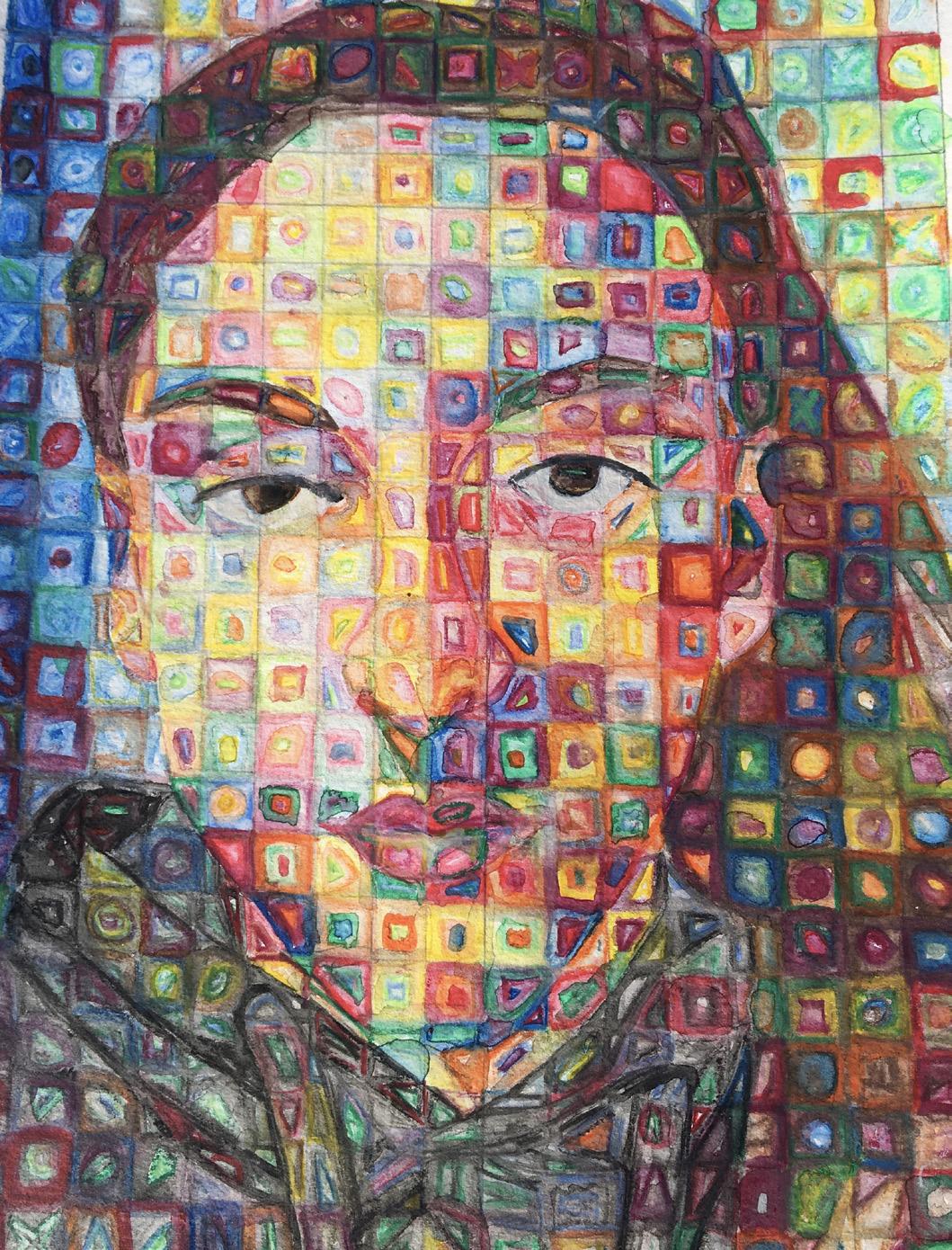
Olivia Khan
and said, “Twins?” The whole group giggled. Thirteen-year-old me thought I was an animal, a savage, a disgusting creature. I felt unlovable and unwanted. I guessed that a black girl could never be desirable in the eyes of a boy. I was fourteen years old. My father was driving on the road. I remember every aspect of this incident. We were driving down Braddock Road and listening to CTRL, SZA’s album. We were singing the lyrics in the car with huge smiles on our faces as our hearts were filled with pure bliss. We saw red and blue lights flashing behind us. Knowing the history of the police, my heart started beating at a faster pace than normal. My dad pulled over to the side and looked into my eyes. I couldn’t hear him exactly because the music was still playing. From his lips, I detected that he said “it is okay.” His shivering hand went to turn off the radio as we heard the officer’s footsteps step closer to the car door. My dad placed both his hands on the wheel after he rolled the window down. My hands were already on the dashboard. I remembered the routine I was taught when I was younger. He informed my father that he passed a red light and my father apologized immediately. The officer asked to see the license and registration. My dad was about to reach into the glove compartment to get the documents. The officers snapped and aggressively opened the car door. He screamed at my father and told him to leave the vehicle immediately. I have never felt so useless and helpless before. I saw my father pressed against the car door in handcuffs. My father did not speak a word or move in the slightest. I have never felt such a rush of conflicting emotions running through my mind, my heart, and all through my body. I sat there in tears as I tried to think of anything I could do that would not put my life at risk. I looked up as I tried to wipe my tears. At the front of the car, I saw the police officer forcefully shove my dad onto the car. His face hit the glass right next to the windshield wipers. I was terrified and scared for our lives. The police officer considered him a threat and a menace for running a red light. I remember other police officers coming onto the scene, but they acted as if they were viewing a movie.

They might as well have brought popcorn to watch because a statue could have done a better job policing than them. The moment was a blur; it felt unreal. Luckily, my father and I made it home, but the trauma we both endured from that moment is indescribable. My daughter curiously asked, “Why do we go through this?” That is always a difficult question to answer. How does one tell their daughter that people might see them as less than human due to the color of their skin? I responded, “The world we live in has been working against us since the dawn of time. The internalized hatred of those who are different has been embedded in every single human being especially in this country, America. You cannot expect a country founded on slavery and the dehumanization of black folk to want to uplift us.” Out of curiosity, Imani said, “Mommy, what am I going to do if this happens to me? I’m not strong like you.” This remark hurt me. My daughter was already criticizing herself and her power at such a young age. I knew she needed to hear words that uplifted her. I reassured her, “Imani, you are a beautiful black girl. Small in size but large in intelligence. You have the strength inside of you to defend yourself. Be the change that people like me could never be. You are a part of the new generation of black women. Make them respect you. You are always going to have to work harder in life to get the simplest of things. You cannot control what people think of you and how they act. What you can do is be yourself unapologetically.” Imani looked at me with her big, enchanting eyes filled with tears that haven’t hit her face yet. I held her tighter. I heard her whisper quietly, “So if I was white, I wouldn’t feel like this?
Mommy, that’s unfair. I wish I was white.” Immediately, I bent down and got on my knees. I looked at her and held her face. With tears running down my cheek, I uttered,
“Being black is a gift. We have a culture in the motherland, Africa.
We were forced to the U.S.A. and stripped of that culture. We created a new culture from the ground up that Americans based 48











